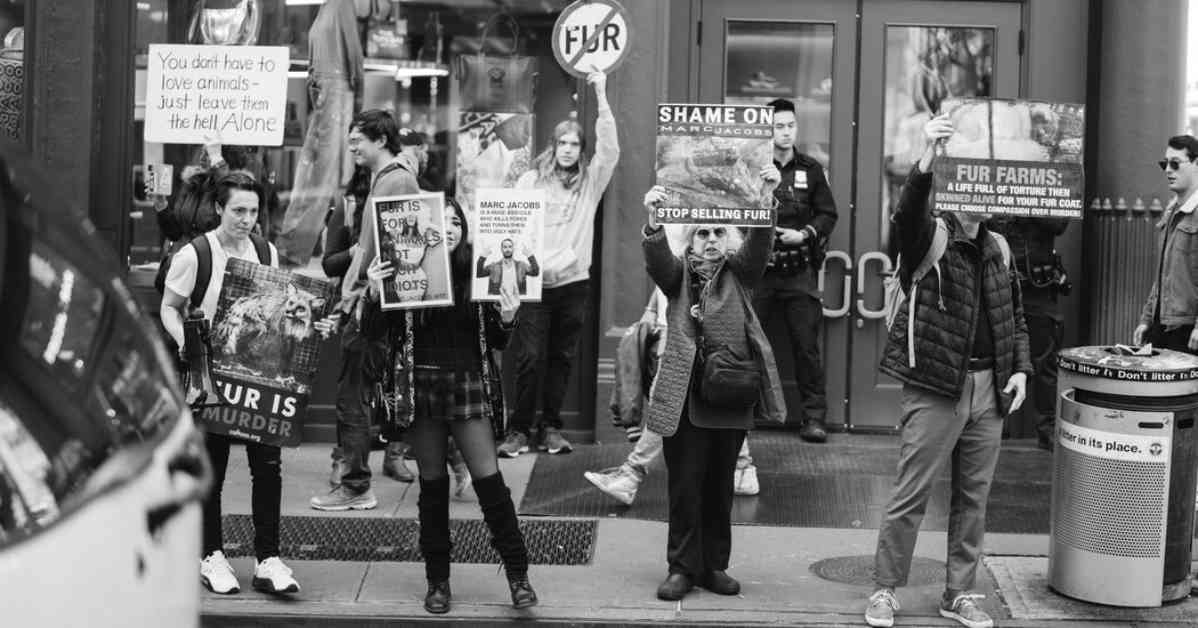Anti-Fur Activists Target Marc Jacobs Employees
Fashion designer Marc Jacobs recently made headlines after being targeted by anti-fur activists who demanded that he publicly denounce the use of fur in his collections. The protesters took their demonstrations to the homes of over a dozen Marc Jacobs employees, using signs, noisemakers, and fake blood to draw attention to their cause.
In response to the protests, Marc Jacobs took to Instagram to clarify that his brand has not used fur in any of its collections since 2018 and has no plans to do so in the future. Despite this, the Coalition to Abolish the Fur Trade (CAFT) continues to pressure the designer to make an official statement renouncing fur.
Matthew Klein, the executive director of CAFT USA, expressed satisfaction with Marc Jacobs’ statement but emphasized that the protests were not violent and were protected by the First Amendment. The organization has been targeting Marc Jacobs since 2023, following the designer’s collaboration with the brand Fendi.
The use of home protests as a form of activism has a long history in movements such as labor rights and civil rights. While Marc Jacobs denounced the activists’ tactics as bullying, he also pledged to prioritize the well-being of his employees.
The fur industry has been a contentious issue in the fashion world, with many designers and brands opting to go fur-free in response to growing concerns about animal welfare. The protests against Marc Jacobs highlight the ongoing debate surrounding the use of fur in fashion and the impact it has on businesses and communities.
As consumers become more conscious of ethical and sustainable practices, the fur industry faces increasing scrutiny and pressure to reform. Activist groups like CAFT play a vital role in raising awareness and advocating for change within the fashion industry. The protests against Marc Jacobs serve as a reminder of the power of grassroots activism in holding brands accountable for their choices and practices.


















